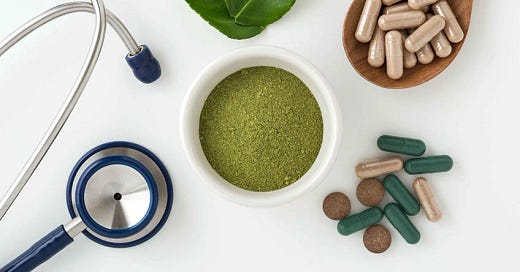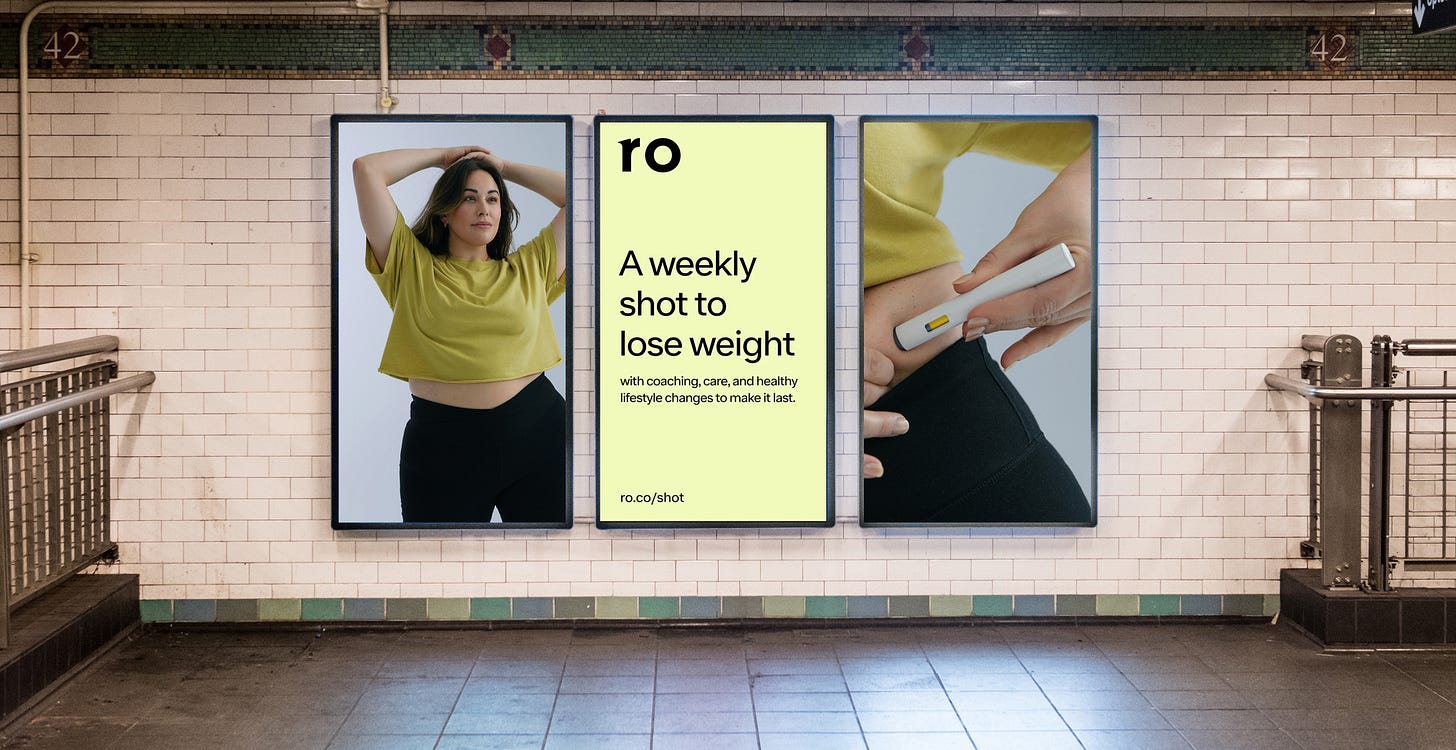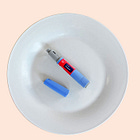What If We’re Wrong?
Health information: what we know, what we don’t, and what we can do about it.
Good morning and happy Thursday, health heroes!
And welcome to the new subscribers who have joined the list — if you’re new here, there’s a fresh Health Shift newsletter sliding into your inboxes every Tuesday & Thursday, where we debunk health myths, learn to think critically about health, and have a good time doing it. I link to past articles and research so click away. Welcome!
Now, let’s get into today’s topic.
Western medicine is a baby in the grand scheme of things.
It has been considered “modern” in the US since the Industrial Revolution in the late 18th century to early to mid 1900s. That’s only a little over 100 years ago. We treat it like an ancient, all-knowing oracle, but in reality, it’s only been around for a blink in human history.
While science is incredible—it has saved lives, eradicated diseases, and given us miraculous interventions—it also has a glaring truth: we don’t know what we don’t know.
That’s the challenge of navigating health today.
The Science We Thought We Knew
Take 98.6°F—Dr. Wunderlich’s so-called gold standard for body temperature. Turns out, it was based on flawed data. Our average body temperature is actually lower (closer to 97.9°F), and it varies by person, and by minute, which makes you wonder: what else do we believe today that will be debunked tomorrow? Blood pressure, cholesterol, and whatever else should be “normal”?
We’ve seen this before. Thalidomide. The food pyramid. Trans fats. Each was hailed as gospel truth, only for science to say, “Oops.”
And yet, we keep doing it. We embrace cutting-edge interventions as if they’ve been tested for generations when, in reality, they’ve barely had a dress rehearsal.
The Hidden Risks of Everyday Life
And it’s not just medications—what about the modern conveniences we barely think about?
📡 Microwaves: They’re in every home, yet some studies suggest microwave-heated plastics leach endocrine disruptors into our food. How much of that are we consuming?
🧴 Lotions, Deodorant, and Skincare Products: Could the moisturizer you slather on every morning be quietly increasing your cancer risk? The U.S. is notoriously lax about regulating chemicals in cosmetics—many ingredients banned in Europe are still used here. Reach about aluminum in deodorant in my past article here.
🍍Kombucha: A “health drink” in the West, but in traditional cultures, it’s consumed in small amounts—not guzzled daily by the bottle. Could too much lead to unintended gut imbalances? Read this article if you are interested in another perspective on probiotics.
🥡 Plastics, water, artificial light, carpet, non-stick cookware, you name it - they all could potentially cause damage to our health. Where do we draw the line?
But don’t worry—other perspectives can help us make better health decisions and, thus, better health. We can take science for what it is—information—and overlay it with more information, like physiological facts—our bodies are wired to heal. We must counter the forces working against our health with stronger forces working for it. But maybe we should focus on what we can do, not what is out to get us.
While science gives us one perspective, other cultures provide another. For thousands of years, people have thrived without sunscreen, kombucha, or microwaves, so we must draw the line between modern advancements, tried-and-true knowledge of the past, and common sense.
The Forces Against Our Health Are Strong—So We Must Be Stronger
The reality is that the forces working against our health are immense. Processed foods designed to hijack our cravings, sedentary lifestyles engineered for convenience, a healthcare system that reacts to disease instead of preventing it, and a pharmaceutical industry built on profit, not wellness.
If we don’t actively and intentionally rethink what we do, we likely will be swept along in the current—another statistic, another patient, another “necessary” prescription.
The Internal Battle: How We Undermine Ourselves
But let’s be honest—it’s not just external forces at play. We are often our own worst enemy.
We fear uncertainty, so we cling to whatever the loudest expert says, even if it contradicts yesterday’s advice.
We want fast solutions, so we rush into medical interventions instead of addressing the root cause.
We have biases, whether it’s blind faith in Western medicine or complete distrust of it—either extreme leaves us vulnerable. It’s not black and white, it’s grey.
We’ve lost our curiosity about the world and its impacts on our health.
How many people ignored the role of diet and exercise for years, only to later embrace GLP-1s as the new magic bullet? How many jumped on new interventions without considering long-term consequences?
(By the way, if you have considered the risk and long-term commitment and have still decided to try GLP-1s, I applaud your thoughtful choice and wish you the best. There is no wrong door when you choose thoughtfully. Keep considering, keep questioning.)
Be curious, question everything, be open to shifting when appropriate, and choose something else. We have the power to maximize our healing potential and achieve our best health if we are open and curious.
If we don’t arm ourselves with knowledge, critical thinking, and a balanced approach, we will be at the mercy of our own impulses and the broader health culture that thrives on keeping us dependent. We must be armed and ready. We must be health heroes.
GLP-1s As An Example
Right now, America is having a love affair with GLP-1 medications like Ozempic, or really, Wegovy, and medicines like it for weight loss.
One in eight Americans have tried weight loss medications, so that is why I consistently bring them up. If you haven’t tried it, you likely know someone who has. I wrote an article for those considering GLP-1s if you want to learn more.
These medications are powerful—helping people lose weight and potentially lowering risks of heart disease and diabetes (if taken long-term in this way, which no one has yet). But what don’t we know yet?
What happens when people get off them?
Will their metabolism recover?
Are there long-term effects we haven’t even considered?
Will we become a hangry nation, irritable and desperate as weight returns?
The same trust was demonstrated with the COVID-19 vaccine. The messaging was "safe and effective," but emerging evidence now forces us into a more nuanced discussion, one that only continues to evolve.
This is why I think we need to shift our perspective on health. We must recognize that while we don’t have all the answers, we have many options to help us heal, and we can mobilize our rational selves to make well-considered health decisions.
The Health Shift: How to Think Through the Unknowns
This isn’t about rejecting science.
It’s about thinking critically, asking better questions, and integrating what we know from all aspects of health—Western, complementary, and lifestyle. It’s about shifting how we approach our health decisions so we aren’t at the mercy of incomplete science.
That’s precisely why I wrote Health Shift: Your Personalized Guide to Making Strategic Health Decisions, my upcoming book (May 13!!). But while we wait for that, I want to give you tools now—ways to think through health decisions, challenge assumptions, and take control.
That’s what this newsletter is for! I dive into health topics and approach them with logic, clarity, and a way to process the information. I encourage you to find out more to come to your conclusions. I don’t tell you what to do; I show you how to find and process the information to make up your own mind.
You will be informed and ready to make the right decision for your circumstances, not someone else’s.
If you’re new here (and again, welcome to the 20+ of you who just joined!), expect dives into navigating modern health decisions with clarity and confidence—all in a logical, empowering, and sometimes even funny way. Because, let’s be honest, some of this stuff is wild.
Looking back on some of my past articles, I see that they’re like an FAQ for health questions! Take a look if you’re new here. Refer others to it, too. These articles will always be free — everyone needs access to better decision-making tools, especially now. It takes me an hour or more to gather and write each article, so don’t let my work go to waste - share this if you can! I do not get paid to do this, I do it because I want to help people make better-informed health decisions. Here are some of the most popular posts. But keep scrolling - I’m not finished.
We need to help each other understand today’s crazy health environment. It will take all of us thinking more clearly to overcome today’s unsettling, illogical, irrational healthcare landscape.
Let’s Start Thinking Differently
The unknowns will always exist. But with the right mindset, tools, and a broader perspective that includes lifestyle and complementary interventions, you can make smarter, more strategic health decisions without waiting for science to catch up.
Let’s shift the way we think about health together. Keep reading articles and questioning whether what they say is really true—including mine. I welcome other perspectives! Stay informed, sharpen your curiosity, and expand your knowledge base. That is how we can overcome today's health challenges.
Remember, perfection is not the goal; progress is!
See you next week, health heroes,
Dr. Alice
A little more about Dr. Alice Burron and Strategic Action Health:
Check out our website!
Catch us on Instagram: @the.health.navigator and @dr_burron
You can also connect on LinkedIn, if you want to be professional about it. 👓
And if you’re not subscribed to Health Shift here on Substack — it’s time! This free newsletter is packed with valuable information and approaches to help you on your journey to better, faster healing.
Book coming May 13, 2025!














